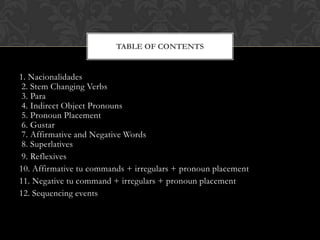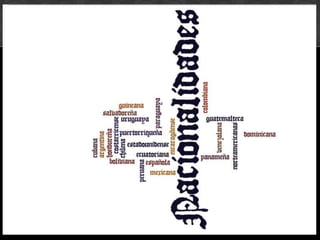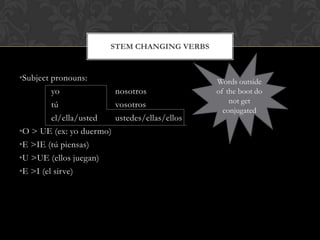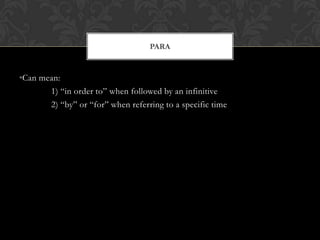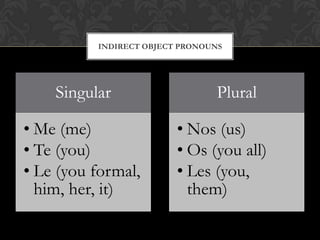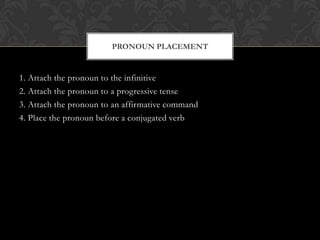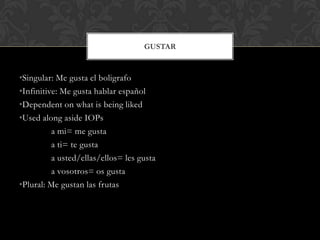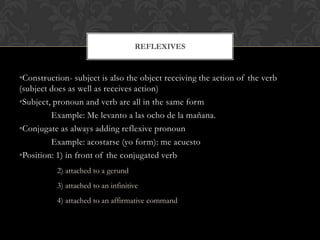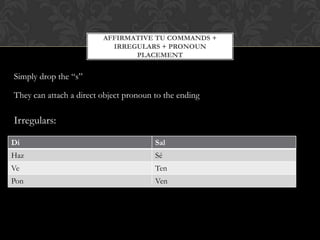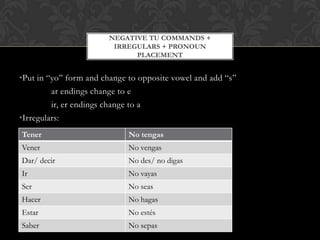This document provides a grammar book table of contents and explanations of various Spanish grammar topics in 11 sections, including: stem changing verbs; para; indirect object pronouns; pronoun placement; gustar; affirmative and negative words; superlatives; reflexives; affirmative and negative tu commands with irregular verbs and pronoun placement; and sequencing events. It explains concepts like stem changes, uses of para, indirect object pronouns and their placement, the construction of gustar, forming superlatives, reflexive verbs, conjugating affirmative and negative commands, and time expressions for sequencing events.

